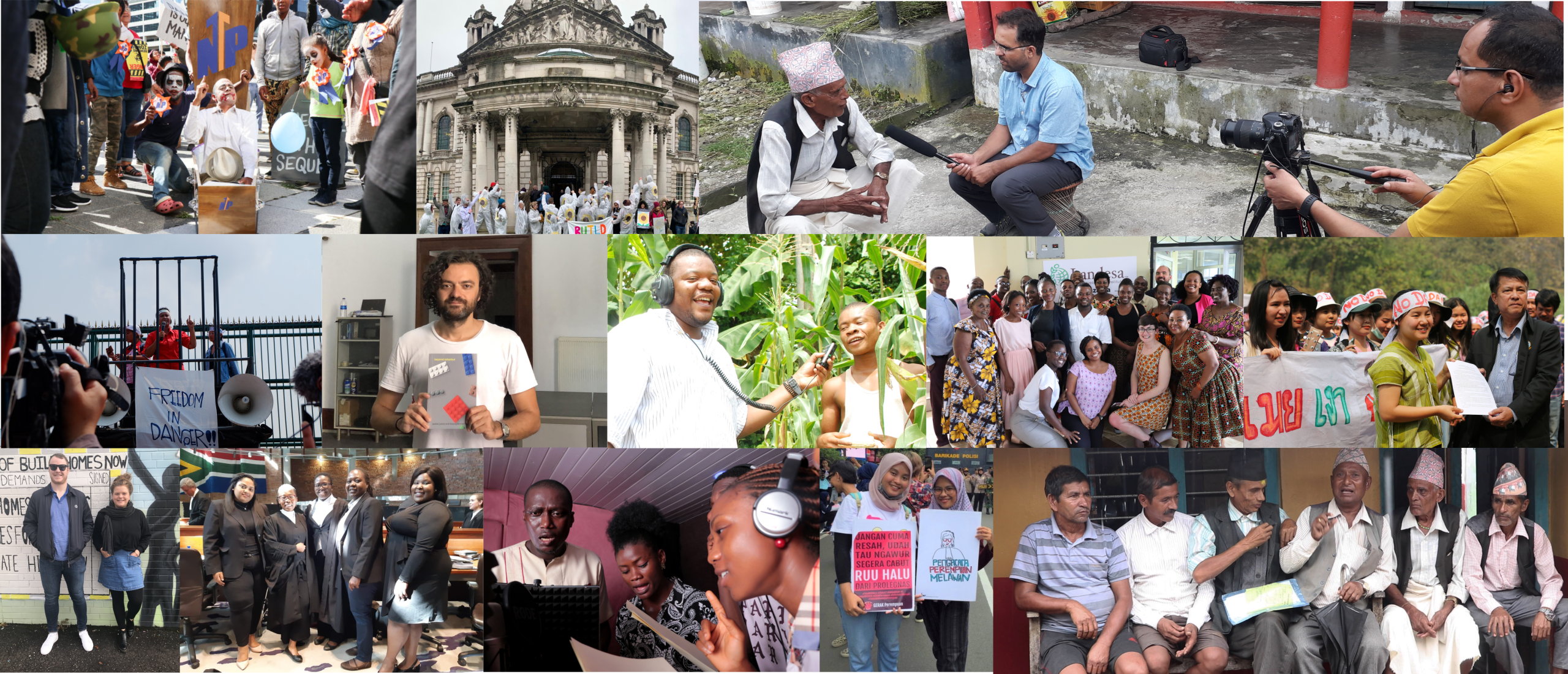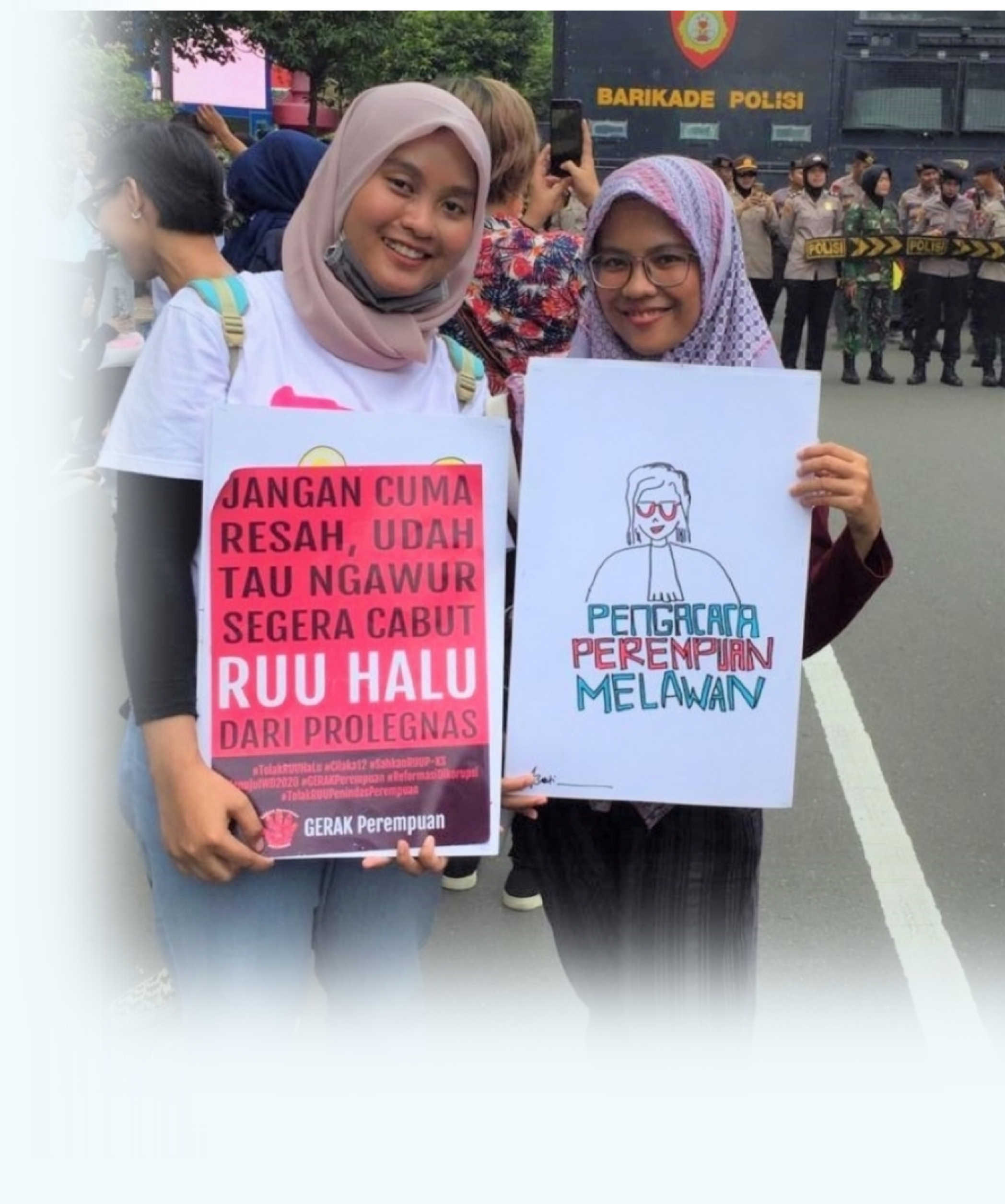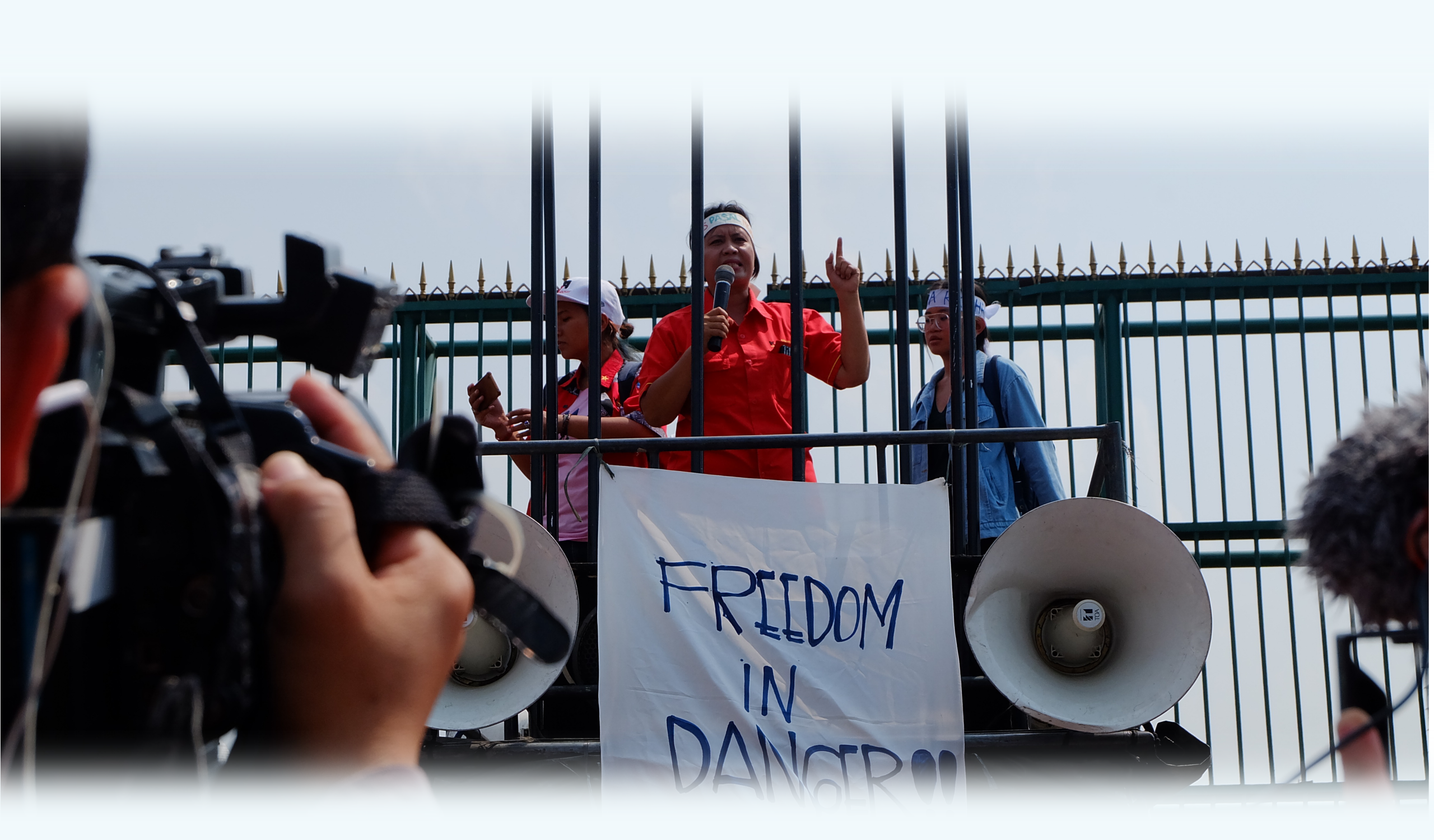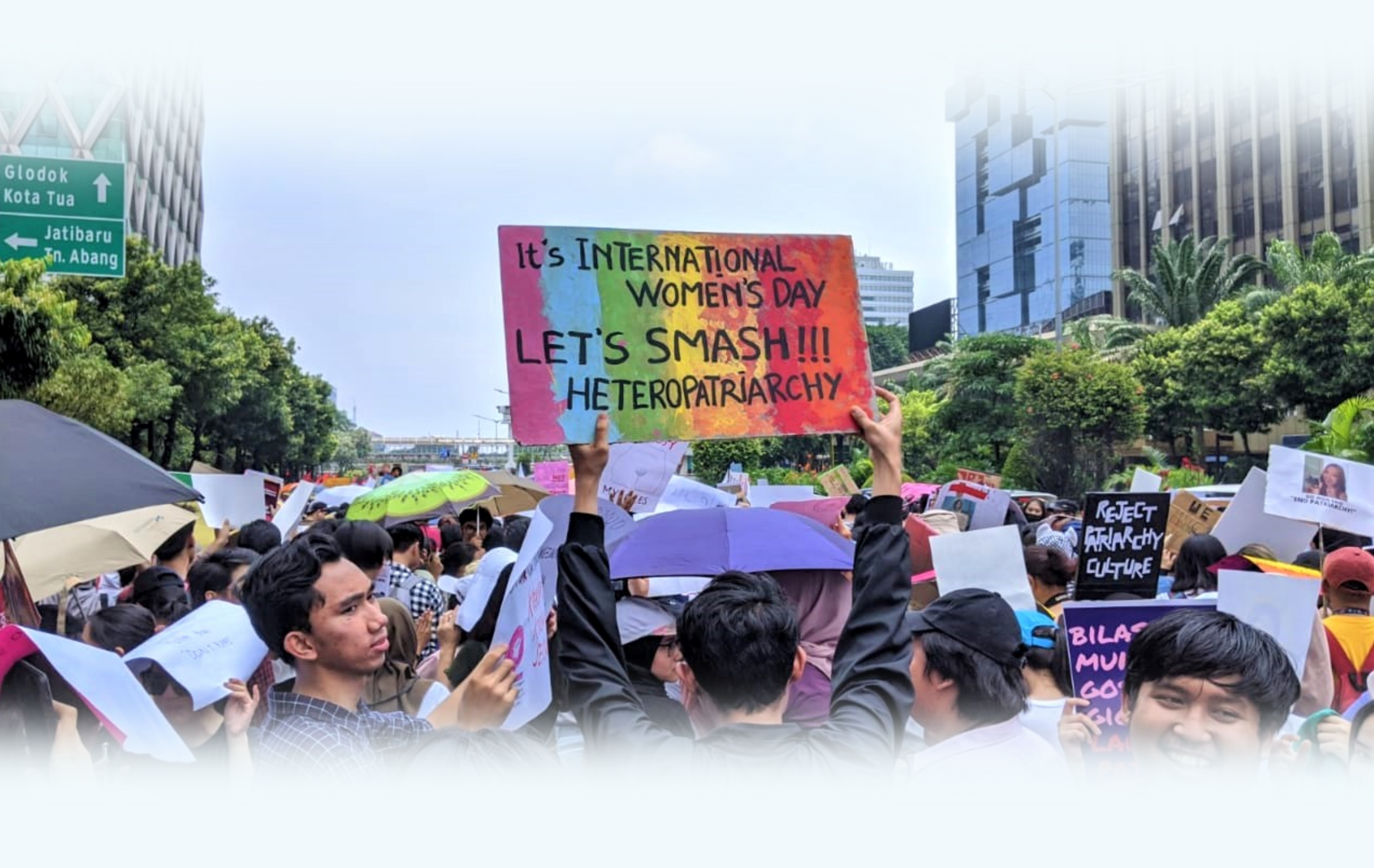Aisya Humaida
Indonesia

Along with her fellow lawyers at LBHM, Bertha Justice Fellow Aisya Humaida is part of an innovative alliance defending LGBTIQ+ rights and uses a combination of activism, storytelling and law in her work.
Aisya Humaida (right) is a Bertha Justice Fellow at Lembaga Bantuan Hukum Masyarakat (LBHM), where Fellows combine research, advocacy, litigation and coalition building with the work of civil society organizations. Aisya’s career began as an entertainment journalist, interviewing artists, reviewing movies and being involved in a feminist arts festival as a long-term member of the women’s rights movement in Indonesia. As part of her Fellowship at LBHM, Aisya works with a coalition of LGBTIQ+ organizations using a combination of activism, storytelling and law to combat attempts to institute a revision to the criminal code seeking to criminalize homosexuality.
As in many countries dominated by conservative and populist views, LGBTIQ+ people in Indonesia are often highly stigmatized, resulting in discrimination, persecution and violence. In response, LBHM is part of the Crisis Response Mechanism (CRM), a coalition consisting of five organizations working on LGBTIQ+ rights in Indonesia established in 2018 to provide a systematic response when incidents occur – including physical attacks, police raids or public shaming and humiliation.

The Indonesian government is seeking to criminalize homosexuality through sweeping revisions of the criminal code that impose restrictions on same-sex relationships and consensual premarital sex. The revision includes laws criminalizing criticism of the president, which can be used to silence criticism of legislation – which means that hard-won press freedoms and free speech may be reversed and the LGBTIQ+ movement’s ability to speak out about persecution or to counter negative media is curtailed. The work of the CRM, through advocacy, litigation and media campaigns, is a crucial part of protecting LGBTIQ+ rights.
As part of the CRM, Aisya is involved in legal assistance and advocacy against the revision of the criminal code. The CRM’s strategy was to have each member of the coalition on the organizing committee of the 2020 Women’s March in Jakarta. Aisya was LBHM’s representative as she is heavily involved in women’s movements and advocacy for legal reform. The Women’s March has long been a safe space for LGBTIQ+ communities to express themselves, and in 2020 one of the objectives at the march was to oppose discriminatory bills, such as the revision of the criminal code. On the committee, Aisya worked with two members of the CRM coalition: SWARA (a youth organization for transgender women) and Arus Pelangi (Rainbow Flow, an LGBTIQ+ advocacy organization). The march demonstrated that LGBTIQ+ people are not dangerous or wrong as depicted in conservative media.

The collaboration included Arus Pelangi mobilizing solidarity groups and a youth leader from SWARA speaking at the march on the impact of the criminal code on transgender rights. As a co-organizer, Aisya, alongside the LBHM team, negotiated event permits with the police. During earlier protests against the revision of the criminal code in September 2019, protesters were arrested and, as part of her role as a Fellow, Aisya managed the casework process of matching the information from activists with police records, and she documented injuries and deaths. During the 2020 Women’s March, Aisya acted as part of the legal team – a crucial role because, as learned from previous mass protests, police could arbitrarily detain protesters and beat them.
Later in 2020, after protests and the march, the government postponed the legislation, but during the pandemic it held discussions excluding civil society organizations to move the legislation forward. Undeterred by the pandemic restrictions, LBHM with coalition partners produced public webinars about the dangers inherent in the revision of the criminal code. Building on her existing journalism skills with media communications training undertaken as part of the Fellowship, Aisya facilitated two of the webinars.

As an activist and lawyer who uses storytelling in her casework and advocacy, Aisya shines as the very embodiment of Bertha’s Theory of Change. Aisya reflects on her experience as a Fellow:
“Undertaking work that focuses on LGBTIQ+ communities is very important to give full legal protection and fulfill communities’ rights. Global support is absolutely needed to create safe space for LGBTIQ+ people... During my Fellowship, I have done a lot of work that I never expected would contribute to a bigger cause. From this Fellowship, I have a huge network of people around the world who support each other to make radical change.”
CREDITS
Photo 1: Aisya Humaida (right) and her colleague from LBHM at the Women’s March 2020. Aisya’s poster says ‘Women lawyers fight back.” Image courtesy of Aisya Humaida
Photo 2: Taken at a protest in 2019 where Aisya Humaida provided legal assistance. Image: LBHM/Tengku Raka
Photo 3: Women’s March 2020. Image: LBHM/ Albert Wirya
Author: Shveta Shah, Program Director, Bertha Justice Initiative
Editorial Consultant: Karen Frances Eng
This story was originally published in the Bertha Fellows book and some of the information in this story may have changed since it was first published.


 Built with Shorthand
Built with Shorthand